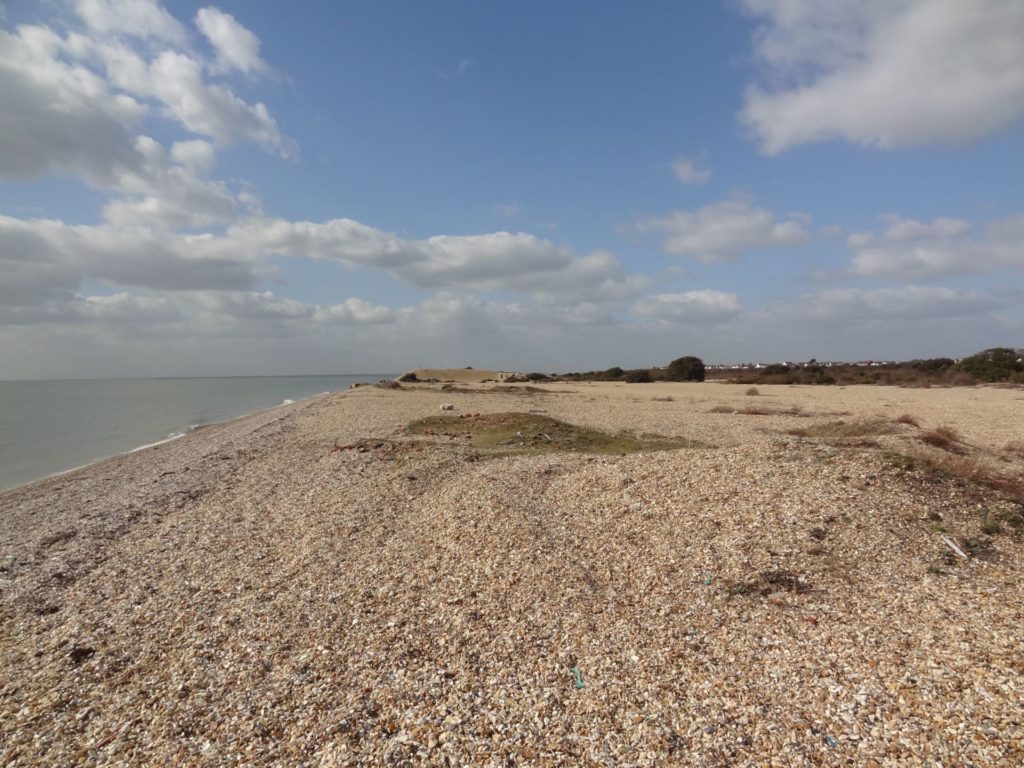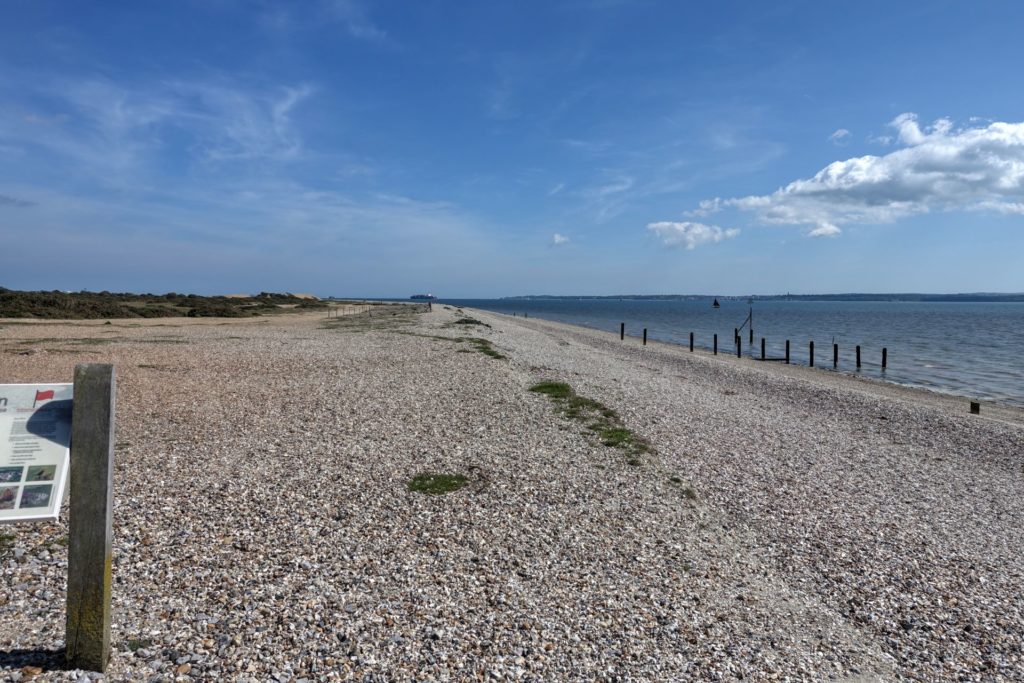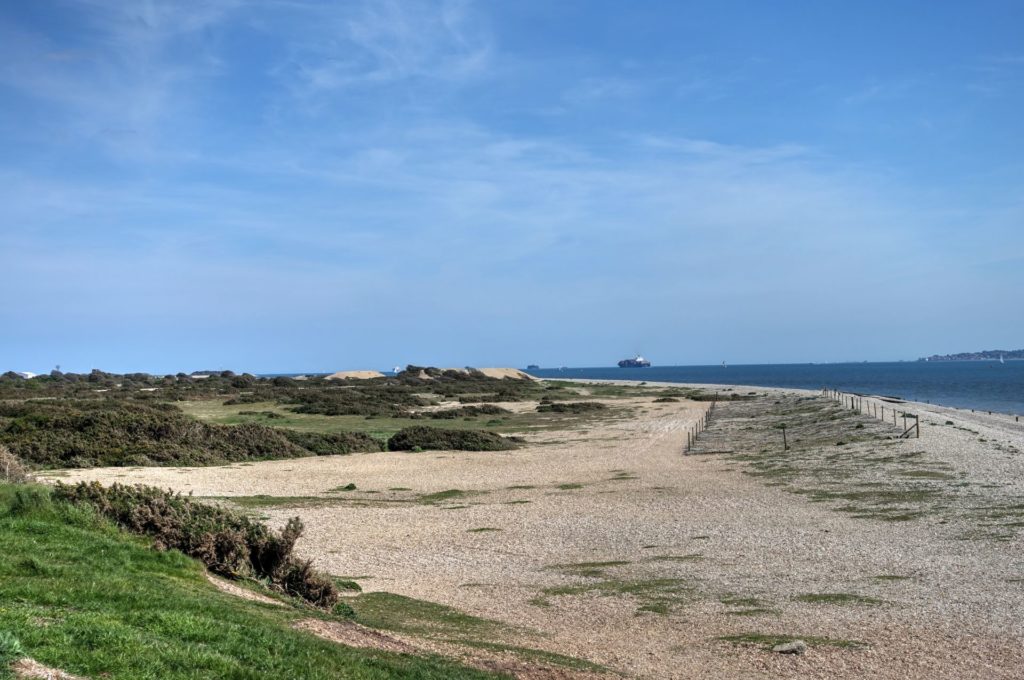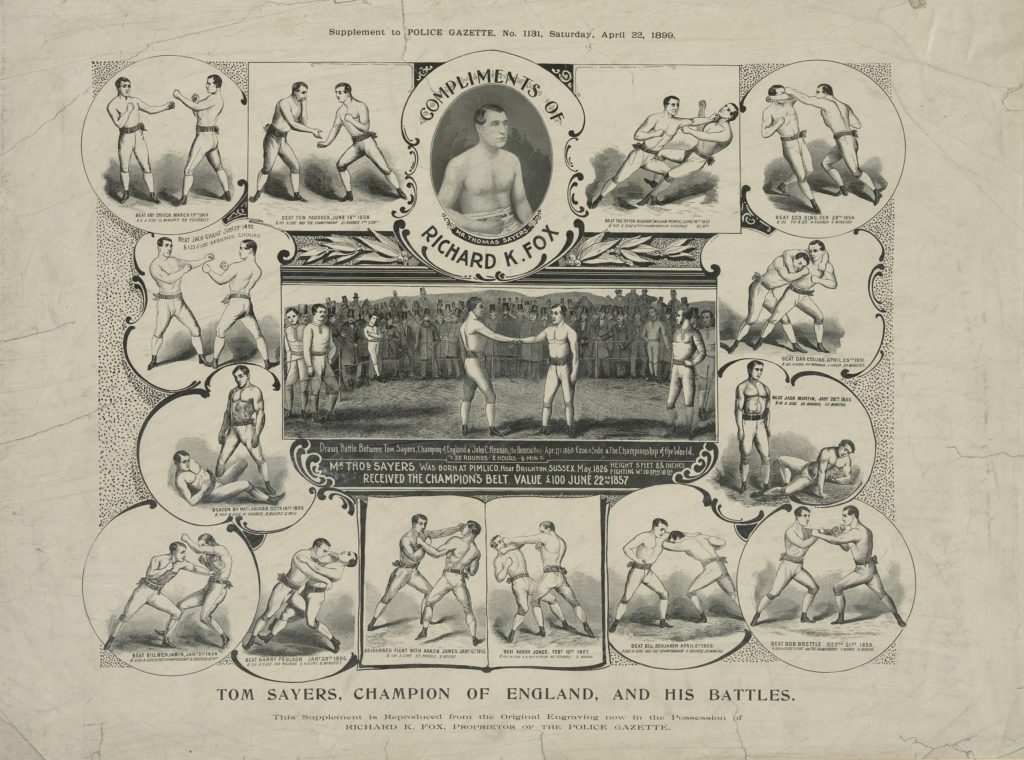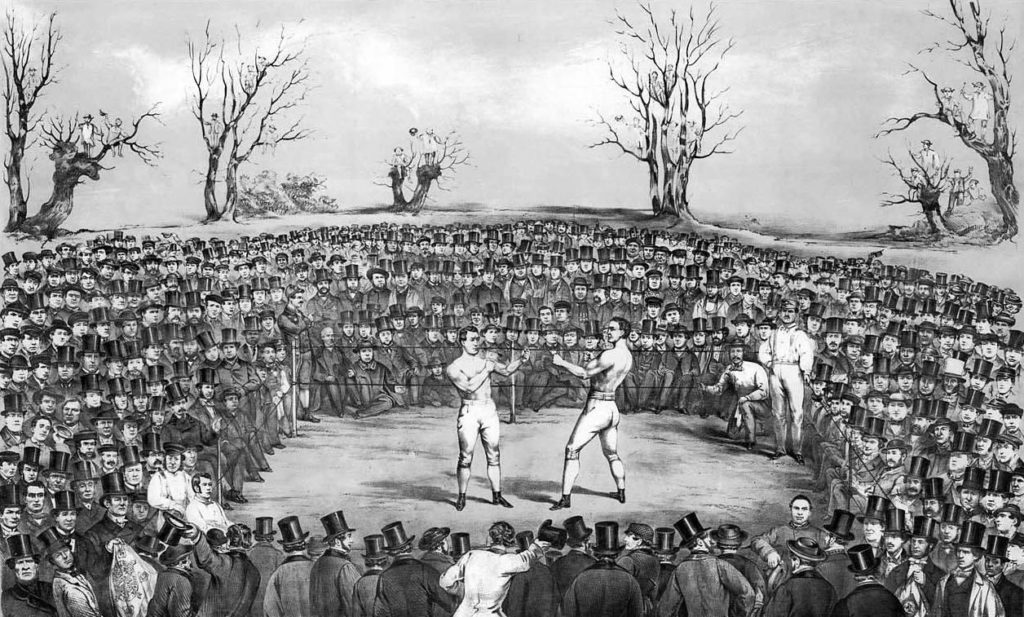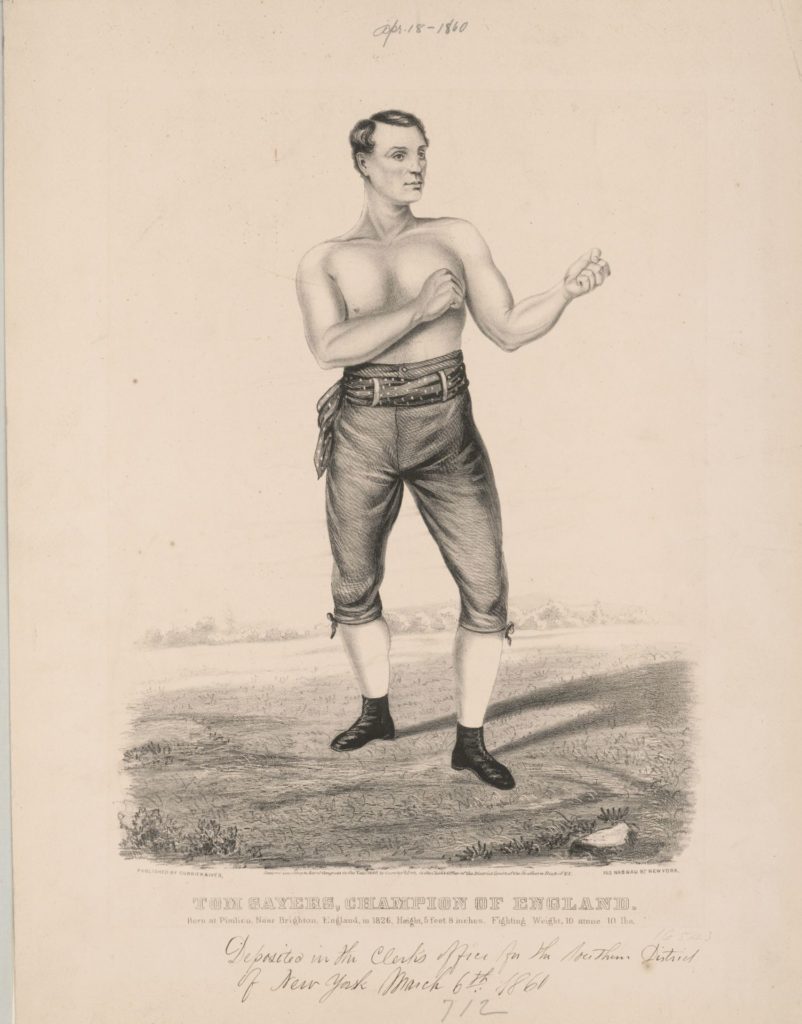Bare Knuckle Fight at Stokes Bay
It was the most unlikely setting for a bare-knuckle prize fight – the Gosport sea shore.
Organisers hastily set up an improvised ring with ropes and stakes and the two boxers slugged it out in front of a vociferous crowd of about 130 people at shortly after 5 o’clock on Tuesday morning.
But the illegal bout at Stokes Bay, near Gosport, came to an unexpected conclusion after five rounds when police officers Charles Kearl and Mark Gregory, who had been hiding in furze, suddenly burst forward and arrested one of the fighters James Richards and placed him in handcuffs.
Richards was no fool and sensing the mood of the crowd, submitted quietly and politely asked if he could use one hand to dress himself. No sooner had his hand been released, irate spectators surged forward and demanded to know what they were going to do with him.
“Take him to the police station,” Kearl replied.
They never had the chance. Several men pulled him away, rushing to a boat from which they had originally landed.
Richards’s battered opponent, James Dooley, could scarcely move.
“Too knocked about,” he told the two police officers. He advised them to go away and as the crowd dispersed, they took no action against him.
The law however caught up with six people who had freed Richards and at Hampshire Quarter Sessions, where they were accused of having formed part of a riotous assembly, unlawfully and forcibly rescuing a prisoner from the custody of the police and assaulting them in the execution of their duty.
The prosecution conceded the assault on the police had not been of an aggravated nature with only sufficient force to prise Richards away. Witness after witness concurred that as soon as the police were seen, the fight broke up and the crowd were quietly dispersing until the police interfered.
It was also revealed Richards had been brought before a magistrate and he had agreed to be bound over.
However the six defendants – George Matthison, George Baker, Edward Hart, Thomas Price, Henry Booth and Robert William Hooper – were not treated so leniently. Convicted, they were each jailed.
No, not example of modern lawless Gosport, this happened at Stokes Bay beach, Browndown, Alverstoke on the 14th April 1863!
The trial took place in July 1863.
From the statement of Mr Poulden for the prosecution it appeared that the police having received information that the prize fight was about to take place at Stokes Bay, two police constables were sent to Browndown to watch, and it possible to prevent it taking place. The men, Kearl and Gregory, secreted themselves in some furze and saw a number of boats coming towards the beach filled with men. The men landed, having with them ropes and stakes and the necessaries used in forming a ring. The ring was formed and the two men, James Richards, alias ‘Curley’ and William Harris, alias ‘Dewley’ or ‘Dooley’, both of Landport stripped, entered the ring and began fighting for £5 a side. After they had two or three rounds (some reports said five), Kearl and Gregory came from their hiding place, the former going towards the boats to see who the parties were, and Gregory going into the ring. Among those present were the six prisoners. Gregory went up to Richards and took him in to custody and placed the handcuffs on him. Richards being stripped asked leave to put on his clothes. This was allowed, and no sooner had one handcuff been taken off than the police were set upon. Booth went up to Gregory and asked him “What they were going to do with Richards?” He replied “Take him to Portsmouth” when Booth said” Not if we can help it.” Hart and Price collared Kearl and threw him down and Baker came up and began sparring at Kearl. While this was on some other men set upon Gregory, whom they had on the ground, and among others was matthison taking an active part in keeping him on the ground. The several witnesses were called to prove the above facts, after which Mr. Yonge addressed the jury for his clients and called several witnesses who swore that although Matthison was present at the fight then left the scene as the police came up, going in an opposite direction to the other party, where it was alleged he assaulted the police, while others were called an denied that either Naker or Hart interfered with, or assaulted the police. Mr. Poulden replied, after which his Lordship summed up and left it to the jury to say which, and how many, if any, of the prisoners were guilty of the offence imputed to them. Richards, when taken into custody by P.C. Kearl made his escape but was retaken by P.S. Cox on the following day in a house in White’s Row Portsea. George Hooper, against whom there was no evidence, was discharged. Richards and Dooley, who used no violence towards the police, were bound over to keep the peace for six months in their own recognizances of £20. The remaining six defendants were committed for trial where they were found guilty and jailed for four months with hard labour.
The passing of the Anti-prize fight Act of 1861 effectively ended bare-knuckle fighting in England. The last bare-knuckle fight, at Farnborough, Hampshire, on 17th April 1860 was a contest between the Englishman David, Tom Sayers, and the American Goliath, Heenan. Although only 5 feet 8 inches tall and weighing less than 10 stone, Sayers became English Heayweight Champion. In a career that lasted from 1849 until 1860 he was only defeated once. His last fight, against John C Heenan, was the first international boxing match. The fight had gone 37 rounds when one set of supporters (it is disputed which), sensing their man was tiring, invaded the ring. The police, who had been watching without intervening in proceedings until then, broke up the ensuing riot. The fight was declared a draw. Sayers retired after the bout.
